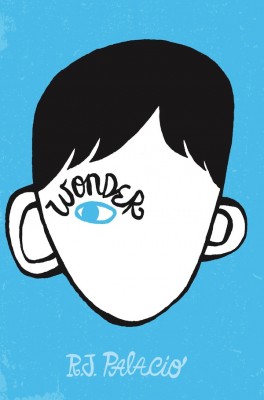Editor's Note: Today we welcome author Marilee Haynes to our family of contributors. She's an author of some truly delightful middle-grade fiction and we are really looking forward to her writing here! Join us in welcoming her today! -SR
Choose kindness.
When you put it like that, just two little words, it certainly seems simple. And truly, kindness is simple. But it’s not always easy.
I had an epiphany of sorts about kindness just yesterday morning. I was talking with my three beans about the difference between being “nice” and being “kind.”
As a confirmed word nerd, there is little I love more than a good discussion about a difference in semantics. After working through it in my own (admittedly muddled) mom-brain, I explained to them that being kind means actually “doing” something. Being nice can be as simple as using good manners or smiling hello or letting your sister have the ONE fork that all three kids have decided is their favorite.
Being kind, on the other hand, requires action. The action may be physical, but it can also be verbal.
Kindness is reaching out to the child who is standing off to the side on the playground and asking him if he’d like to play. Kindness is scooching over to make room for the child for whom no one else is making room. Kindness is standing up for someone who is being teased – letting them know by word and deed that they’re not standing alone.
Kindness can seem small to the doer, but to the person on the receiving end, it can feel HUGE. And I truly believe that developing the skill of kindness will build a child’s character like nothing else can.
Choose kindness. It’s a precept – a mantra of sorts – from a tremendous book, Wonder by R.J. Palacio. It is a middle-grade novel that far transcends the middle school experience. If I may hop onto my author soapbox for a brief moment, I feel strongly that this book should be required reading for every kid ten and over and every adult, period, especially if you’re a parent.
I won’t go into great detail, but it’s a book about a ten-year-old boy born with grave cranial-facial deformities and his experience of attending school for the first time. There are moments that are painful to read and moments of such hope and beauty they took my breath away. Needless to say, there was some ugly crying when I read the book – both times.
Wonder was a recent choice of the book club to which I belong. Now there are times we moms get together and eat snacks and sip wine and spend little if any time actually talking about the book.
This was not one of those times. We had a fantastic discussion about kindness and disabilities – seen and unseen – and how kids learn – and unlearn – kindness.
It was a discussion that left me both hopeful and afraid. Because the truth is, kids can be unkind. So can adults. This lack of kindness can be unintentional, but many times it is delivered with full purpose and intent.
Those of us in the book club all have younger children – early elementary and younger. And midway through the night, it struck me that kindness is relatively easy at that age. It’s not automatic, but it’s almost natural for younger kids to be kind. To extend themselves and offer help to a friend in need. To overlook or accept a difference in a classmate.
But those years don’t last forever. They don’t last nearly long enough. As kids get older, kindness becomes less automatic. Less cool. And less likely to happen.
My solution-loving mind played with this idea for hours after we all said good night. And I think the solution is – again – simple. Not easy, but simple. The natural instinct toward kindness must be nurtured. It’s like any other developmental skill – or a muscle, even. If you don’t use it, you lose it.
Is awareness enough? Probably not. Can you force a child to be kind? Absolutely not. I imagine the only thing that might feel worse than having someone be unkind is the knowledge that a kindness was insincere.
At this stage, with my three facing daily adventures in 1st grade, kindergarten, and preschool, my plan is to talk about kindness. To call out examples both done by and done to my beans.
I’ll make darned sure they know – and feel – kindness when they see it. Because I also think being kind can become a habit. And as my relationship with chocolate tells me, habits can become addictive.
How do you / can you encourage the habit of kindness in yourself and your children?
Copyright 2014 Marilee Haynes
About the Author

Guest
We welcome guest contributors who graciously volunteer their writing for our readers. Please support our guest writers by visiting their sites, purchasing their work, and leaving comments to thank them for sharing their gifts here on CatholicMom.com. To inquire about serving as a guest contributor, contact editor@CatholicMom.com.



.png?width=1806&height=731&name=CatholicMom_hcfm_logo1_pos_871c_2728c%20(002).png)
Comments